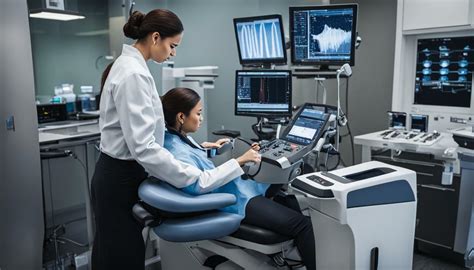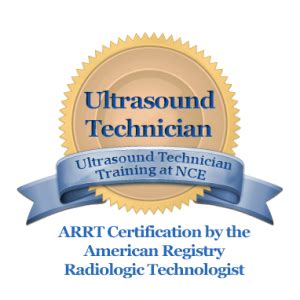Intro
Discover lucrative ultrasound tech job opportunities in the medical field. Learn about the growing demand for sonographers, competitive salaries, and diverse career paths in hospitals, clinics, and research settings. Explore the latest trends and advancements in ultrasound technology and find out how to capitalize on this in-demand profession.
The field of ultrasound technology has experienced significant growth in recent years, driven by advances in medical imaging technology and an aging population requiring more diagnostic procedures. As a result, the demand for skilled ultrasound technicians, also known as diagnostic medical sonographers, has increased substantially. In this article, we will explore the various job opportunities available to ultrasound technicians and the benefits of pursuing a career in this field.

Job Opportunities in Ultrasound Technology
Ultrasound technicians can find employment in a variety of healthcare settings, including hospitals, clinics, private practices, and imaging centers. Some of the most common job opportunities for ultrasound technicians include:
Hospital Settings
Hospitals are among the largest employers of ultrasound technicians, with opportunities available in various departments, such as radiology, cardiology, and obstetrics and gynecology. Ultrasound technicians in hospital settings may work with patients of all ages, from newborns to geriatric patients, and may be required to work irregular shifts, including nights and weekends.
Outpatient Imaging Centers
Outpatient imaging centers, also known as freestanding imaging centers, offer a range of diagnostic imaging services, including ultrasound, MRI, and CT scans. Ultrasound technicians in these settings typically work regular daytime hours and may have more opportunities for specialization in specific areas, such as vascular or musculoskeletal ultrasound.
Private Practices
Private practices, such as obstetric and gynecologic clinics, may also employ ultrasound technicians to perform diagnostic ultrasound procedures. These settings often offer a more personalized work environment and may provide opportunities for professional growth and development.
Research and Education
For those interested in research and education, opportunities are available in academic institutions, research centers, and medical imaging companies. Ultrasound technicians in these settings may be involved in developing new ultrasound technologies, teaching students, or conducting research studies.
Specializations in Ultrasound Technology
Ultrasound technicians can specialize in various areas, including:
Obstetric and Gynecologic Ultrasound
This specialization involves performing ultrasound procedures on pregnant women and women with gynecologic conditions. Obstetric and gynecologic ultrasound technicians may work in hospitals, private practices, or outpatient imaging centers.
Cardiovascular Ultrasound
Cardiovascular ultrasound technicians perform diagnostic procedures on patients with heart and vascular conditions. This specialization requires advanced knowledge of cardiovascular anatomy and physiology.
General Ultrasound
General ultrasound technicians perform a range of diagnostic procedures, including abdominal, musculoskeletal, and small parts ultrasound. This specialization provides a broad foundation in ultrasound technology and can lead to opportunities in various healthcare settings.
Benefits of a Career in Ultrasound Technology
A career in ultrasound technology offers numerous benefits, including:
Job Security and Growth Opportunities
The demand for skilled ultrasound technicians is expected to continue growing, driven by advances in medical imaging technology and an aging population. This demand translates to job security and opportunities for professional growth and development.
Competitive Salary and Benefits
Ultrasound technicians are generally well-compensated, with median salaries ranging from $60,000 to over $100,000 depending on location, experience, and specialization. Benefits may include health insurance, retirement plans, and paid time off.
Personal Satisfaction and Fulfillment
A career in ultrasound technology can be highly rewarding, as technicians play a critical role in diagnosing and treating medical conditions. The opportunity to work with patients and make a positive impact on their lives can be a significant source of personal satisfaction and fulfillment.
Education and Training Requirements
To become an ultrasound technician, one must complete a formal education program in diagnostic medical sonography. These programs are typically offered at the associate's or bachelor's degree level and include both classroom and clinical training.
Associate's Degree Programs
Associate's degree programs in diagnostic medical sonography typically take two years to complete and include coursework in anatomy, physiology, and ultrasound physics. Clinical training is also an essential component of these programs.
Bachelor's Degree Programs
Bachelor's degree programs in diagnostic medical sonography typically take four years to complete and include more advanced coursework in areas such as patient assessment and ultrasound instrumentation.
Certification and Licensure
Certification and licensure requirements for ultrasound technicians vary by state and employer. The American Registry for Diagnostic Medical Sonography (ARDMS) offers certification in various specialties, including obstetric and gynecologic ultrasound, cardiovascular ultrasound, and general ultrasound.

Conclusion
A career in ultrasound technology offers numerous benefits, including job security, competitive salary and benefits, and personal satisfaction and fulfillment. With various specializations and job opportunities available, ultrasound technicians can choose a career path that aligns with their interests and goals. If you are interested in pursuing a career in ultrasound technology, we encourage you to explore the education and training requirements, as well as the certification and licensure options available.
What is the average salary for an ultrasound technician?
+The average salary for an ultrasound technician varies depending on location, experience, and specialization. However, median salaries range from $60,000 to over $100,000 per year.
What are the education and training requirements for an ultrasound technician?
+To become an ultrasound technician, one must complete a formal education program in diagnostic medical sonography, typically at the associate's or bachelor's degree level.
What are the certification and licensure requirements for ultrasound technicians?
+Certification and licensure requirements for ultrasound technicians vary by state and employer. The American Registry for Diagnostic Medical Sonography (ARDMS) offers certification in various specialties.
